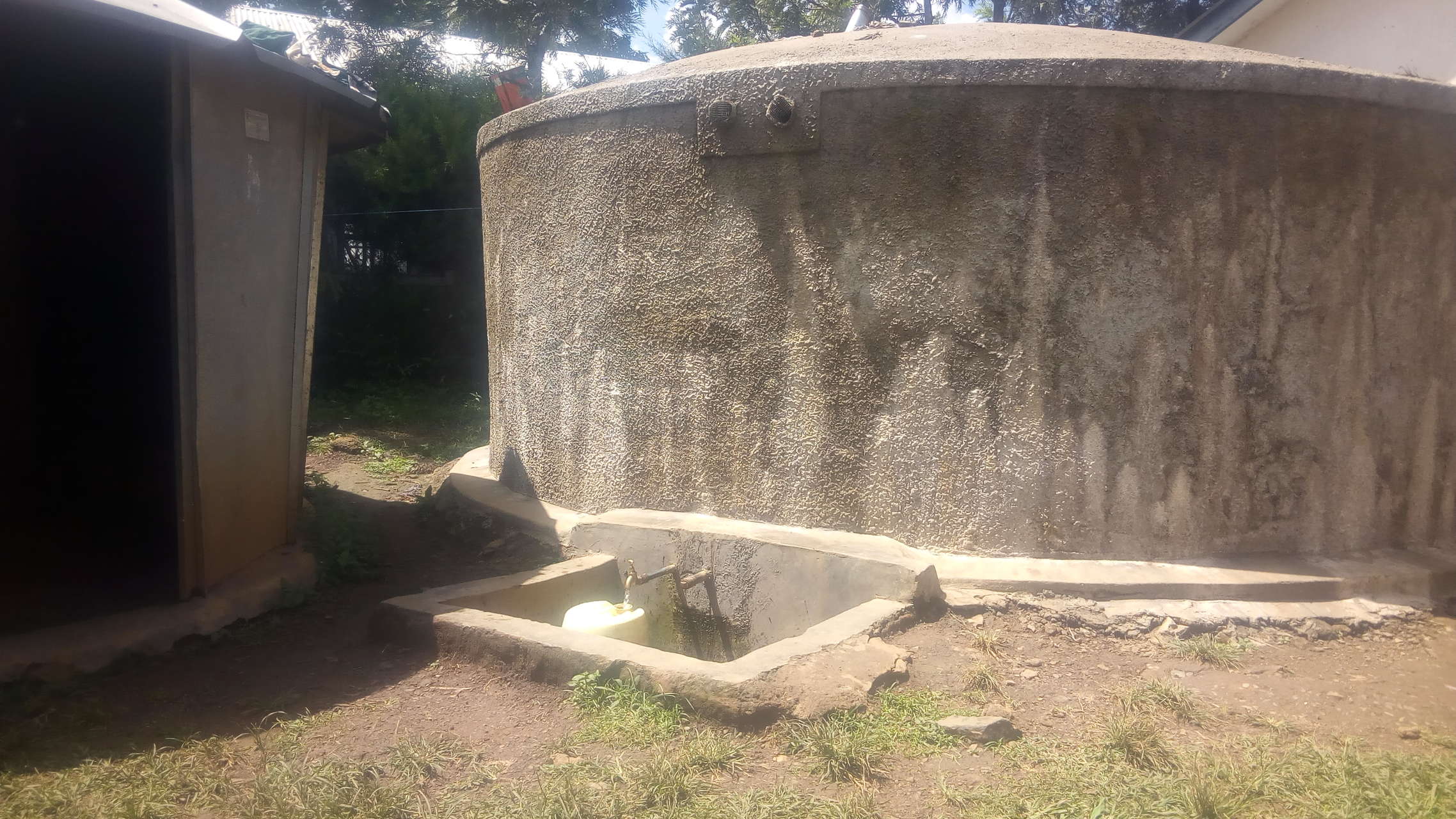This project is a part of our shared program with Western Water And Sanitation Forum (WEWASAFO). Our team is pleased to directly share the below report (edited for clarity, as needed).
Welcome to the School
Everyone working at this school fully devotes their attention to serving the marginalized children in their community. Each person follows a daily commitment to help learners develop a sense of belonging and acceptance in their communities. Some of their tasks include balanced, coordinated support in helping children with personal hygiene, going to the latrines, developing communication skills, acquisition of basic numeracy, spiritual growth, and co-curricular activities.
There are various agricultural activities going on to teach these children this livelihood: they grow bananas, maize, indigenous vegetables and vegetable spices on school grounds. Additionally, the school rears poultry and a few cattle; all done on a small scale for subsistence purposes.
With most learners coming from humble backgrounds with parents or guardians unable to raise funds to build their own homes; it will go unchallenged to note that some of them are casual laborers who operate on a hand-to-mouth basis. Even with these constraints, the school has been able to graduate and send out about 80 learners back into their communities, and it has organized several fruitful awareness and sensitization campaigns on disabilities. Besides, the school has been represented in the Special Olympics conducted in North Carolina not once but twice; and has been competing in the annual sports and games for special schools at the Kenyan national level.
66 of the 136 students are boarders who live in dormitories here.
Water Situation
The school is attached to a piped system that they pay 2,000 shillings per month to use. However, there are constant technical difficulties at the supply station. There is a small plastic tank that would hold this water, but the tap isn't even on often enough to fill it.
Thus, students are forced to leave school to fetch water. The nearest water source is Amianda Spring. They carry small jerrycans that are no more than five liters, because some learners have multiple handicaps that prevent them from carrying anything heavier. As a result, students must make the trip to Amianda Spring several times when the school's piped system fails.
This trip is so risky for the students, for some of them are faced with epileptic seizures and young girls are preyed upon by ill-wishing strangers.
Sanitation Situation
Heavy rains caused two blocks of latrines to collapse. There are now only five doors of pit latrines at the school. The boys' latrines are makeshift, with both walls and the roof made of iron sheets. Latrine hygiene is quite poor, and there aren't enough of them to serve the students. Some students can't bear to wait in line and instead seek privacy elsewhere to relieve themselves.
Though these students have to work harder to complete their daily chores, they're doing a great job. During our visit, we saw several students washing their clothes and mopping cement floors. Their dormitories were organized and bedding was clean.
Plans: Hygiene and Sanitation Training and Hand-Washing Stations
Training will be held for two days. The facilitator will use PHAST (participatory hygiene and sanitation transformation), ABCD (asset-based community development), CTC (child to child), lectures, group discussions, and handouts to teach health topics and ways to promote good practices within the school. The CTC method will prepare students to lead other students into healthy habits, as well as kickstart a CTC club for the school. This CTC club will oversee the new facilities, such as hand-washing stations, and make sure they are kept clean and in working condition. The two hand-washing stations will be delivered to the school, and the club will fill them with water on a daily basis and make sure there is always a cleaning agent such as soap or ash.
Plans: VIP Latrines
Two triple-door latrines will be constructed with local materials that the school will help gather. Three doors will serve the girls while the other three serve the boys. And with a new source of water on school grounds, students and staff should have enough to keep these new latrines clean.
Plans: Rainwater Catchment Tank
A 50,000-liter rainwater catchment tank will help alleviate the water crisis at this school. The school will also help gather the needed materials such as sand, rocks, and water for mixing cement. Once finished, this tank can begin catching rainfall that will be used by the school’s students and staff. With proper management of this huge tank, students will no longer have to leave class and risk their health on the long walk to Amianda Spring.
We and the school strongly believe that with this assistance, standards will significantly improve. These higher standards will translate to better academic performance!

 Rainwater Catchment
Rainwater Catchment
 Rehabilitation Project
Rehabilitation Project



































